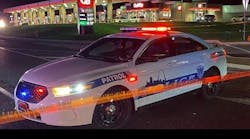March 13--Police Commissioner Charles H. Ramsey will pursue a policy of rotating officers in narcotics units, an offshoot of the ongoing FBI inquiry into the conduct of investigators formerly assigned to drug enforcement.
Limiting how long an officer serves on a unit, however, will have to be negotiated with the police union. The current contract expires in June 2014, and Ramsey says he expects a fight.
"It will be a huge battle in the next contract. Am I optimistic? Not terribly," he said this week.
Ramsey, who served as chief in Washington and as a deputy superintendent in Chicago, said it was far more difficult to change union contracts in Philadelphia than in those cities.
The FBI is investigating six officers from the Narcotics Field Unit South and at least five current and former officers from other units, police officials say. The District Attorney's Office, meanwhile, has withdrawn prosecutions in about 270 cases of the six from the field unit.
"I got a problem. I'd like to fix it," Ramsey said. "Should there be a rotation? Yes."
Under Ramsey's plan, no more than a quarter of the officers in any unit would be rotated in a year.
This is not the first time such transfers have been recommended.
A 2002 report by the now-defunct Philadelphia police integrity office cited multiple dangers in keeping officers in antidrug units indefinitely.
The report, which followed the federal prosecution of officers in North Philadelphia, said long stints in drug units can cause investigators to become "too insular, self-protected, and burned-out."
The report said law enforcement agencies around the country required transfers of narcotics officers every three to four years. At the time, the city endorsed the recommendation for rotations. The proposal, however, went nowhere.
John McNesby, president of the Fraternal Order of Police Lodge 5, said the union opposes a blanket time limit for serving in narcotics.
"There's no reason to rotate everyone out," McNesby said. "That's absurd. Officers become better at what they do as the years go on. They become specialized in something. And you want to get rid of that?"
But McNesby said he would not oppose moving narcotics officers from one drug unit to another in a different section of the city.
McNesby said such transfers would let officers continue drawing on their experience in fighting drugs and ensure that they do not become too cozy with informants.
Ramsey dismissed the union's approach.
"That's not going to change anything," he said, stressing that much of the benefit of rotation comes from shifting officers to different types of work.
"It's not just an integrity issue," he said. "I think rotation is just good for rounding out one's career, being exposed to different things, having an opportunity to work in different units."
Copyright 2013 - The Philadelphia Inquirer
McClatchy-Tribune News Service


